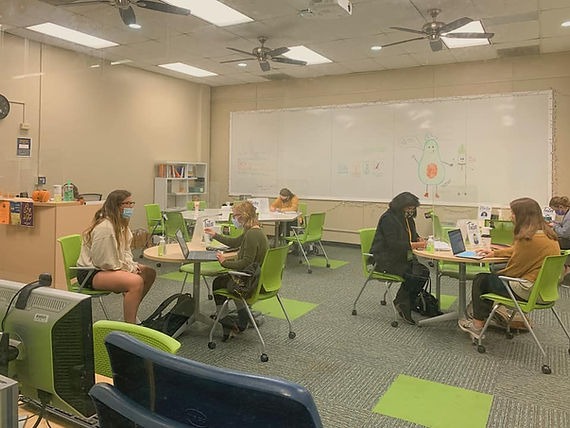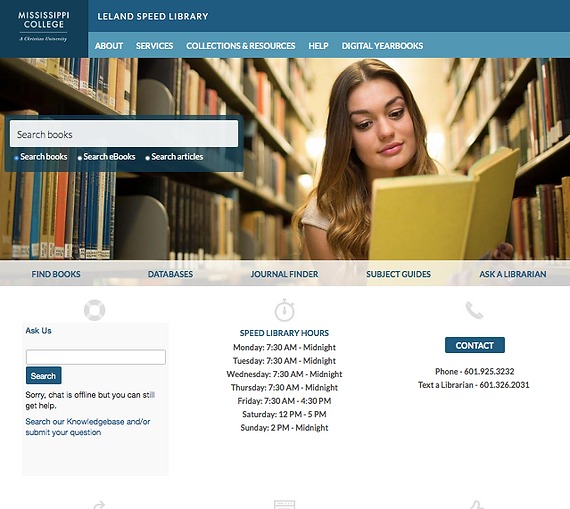How To Conduct Research Using The Library's Resources
by Mary Freeman
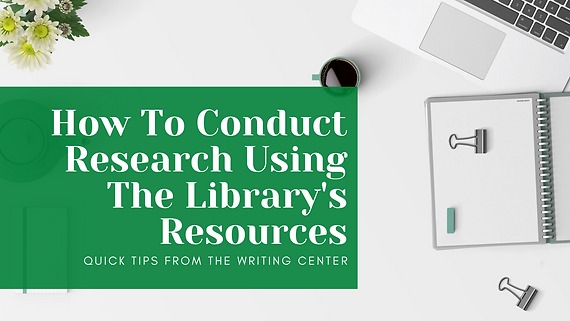
Hey everyone, it’s Annie! As the semester starts to pick up, many of us will probably be asked to conduct research for a paper, presentation, or exam. Research can seem intimidating, especially when you’re not really sure where to start. Thankfully, Mississippi College’s Leland Speed Library offers an abundance of materials to make this process a little less daunting. I asked one of our Writing Center tutors, Mary Freeman, to talk about how you can use the library to help with your research projects.


Writing Center Tutor, Mary Freeman
The Leland Speed Library’s website is a great place to start when conducting research. The hours of operation are listed, as well as an easy-to-find search bar for books that may be relevant to your topics. From the website, you can look up books, journals, eBooks, and other resources that can help with your research. You can also get in touch with librarians, other libraries, and extensive databases that MC provides to students with free access. You can even access tutorials and guides on various topics you may need help with. Here are a few ways you can utilize the library’s website and its resources to help you with your research:
The homepage of the Leland Speed Library's website is a great place to start!
1. Library Tutorials
The library website features a multitude of tutorials that are useful to your research process. If you are struggling to begin your research, the library has tutorials on how to familiarize yourself with research strategies. For example, the “Research 101: Information Literacy/Getting Started” tutorial features five questions to ask yourself when beginning to research a topic:
-
What information do I need and want to know?
-
How do I find that information efficiently and effectively?
-
What authorities should I trust?
-
How do I synthesize the information into my own thinking and writing?
-
How do I acknowledge my sources ethically?
In addition to tutorials on beginning research, the library website features tutorials on utilizing the sources within the library in an efficient manner. These tutorials answer an array of questions, such as how to use advanced searching in online databases, how to use TRAAP evaluation, and how to find eBooks or articles. You can also use these tutorials to learn how to utilize the online databases and physical resources in the library, which are both resources we’ll talk about below.

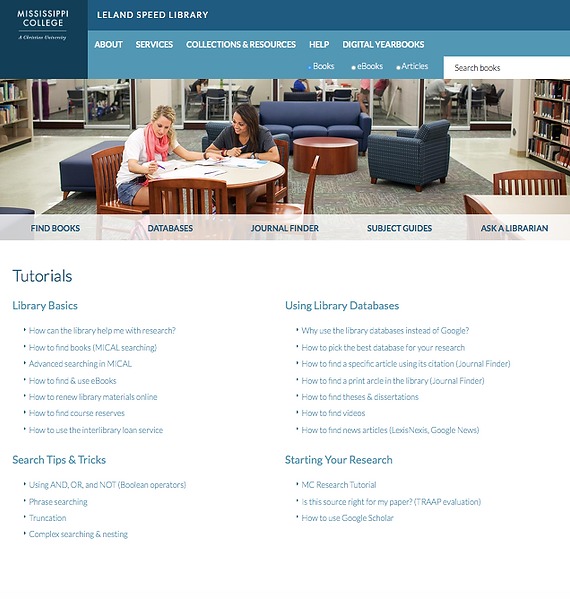
The library has many useful tutorials on their website!
2. Online Databases
The online databases are one of the most valuable tools on the library’s website. A database is a collection of online information that is sorted into almost every discipline of academics. The library purchases subscriptions to many databases to provide free access for students to information on countless topics. The library’s databases touch on various subject areas, ranging from English to Biology to Psychology to Art to general subjects. For instance, Mergent Online provides resources about business and IPA Source provides works regarding music. You can filter these databases to ones relevant to your research by pressing the “Filter by subject area” bar on the database home page and selecting your desired subject area. You can then select a database relevant to your resource and conduct a search within this database to find materials.

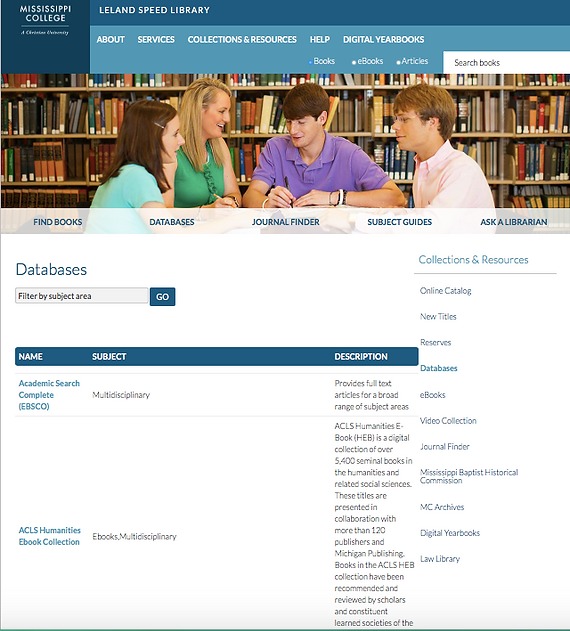
You can use the "Filter by subject area" bar to find the right database!
When conducting these searches, you might find it useful to conduct an Advanced Search to ensure you get the most relevant information and waste as little of your time as possible when searching for information! (Unsure how to conduct an Advanced Search? Try this tutorial). You can also use the various search features to ensure the articles and journals you review are relevant, such as controlling the publication date of the resource, the author, or what type of publication you are viewing.

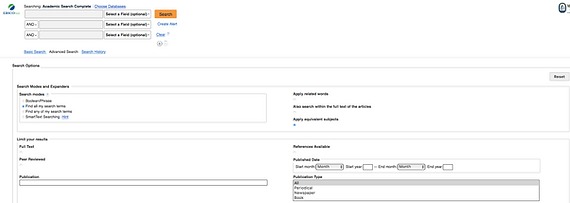
You can use advanced searches to find the sources most useful for your research!
3. Physical Resources
Along with the online resources, the library has an abundance of physical resources in the forms of books and periodicals. You can locate these books and periodicals through the library website by searching for the topic, title of a work, or author of a work on the search bar on the website's home page. Once you locate the resource you want to use, you can check the availability of the work, write down the call number of the resource, and use this call number to locate the work in the library. Additionally, you can locate books and periodicals in the library by asking for assistance from the library staff. Helpful, cheerful, and heralds of learning, the library staff is always willing to show you where a work is located or where works of a particular genre are stored. If you need access to a resource that the library does not have access to, you can ask a librarian to assist you in an interlibrary loan - sometimes, even authors of theses or other works will be willing to contact you directly.

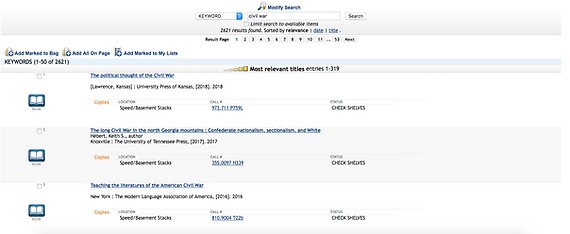
You can check the availability and call number of a resource to locate it in the library!
The Leland Speed Library is a great place to conduct research, and the various tutorials and resources provided to students make the process as easy and interesting as possible. Research may seem frightening or confusing, but with the amount of information at your fingertips, you can become as well versed on your topic as any expert in the database! If you’re struggling with your research project or have more questions about the library’s resources, you can stop by the Writing Center and receive assistance from one of our tutors!

